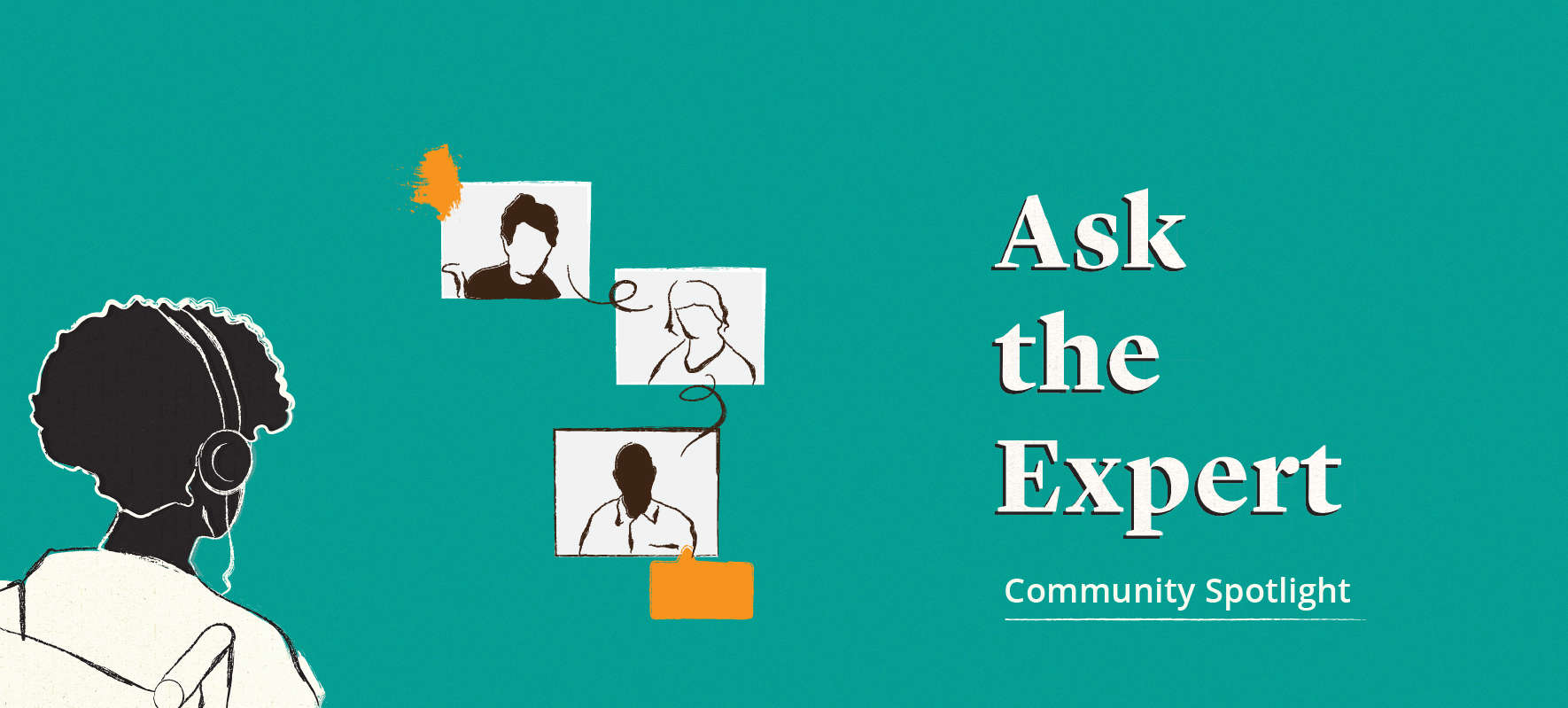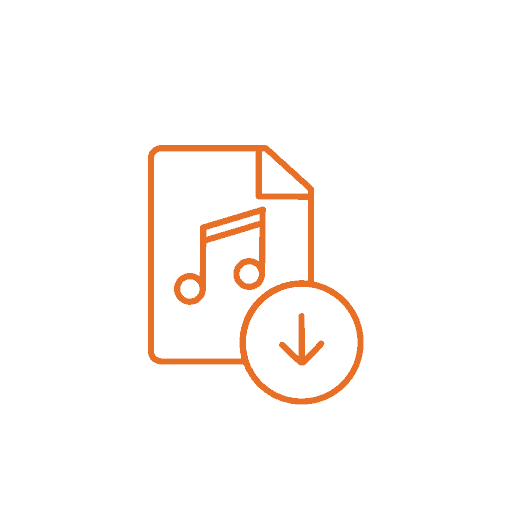Community Spotlight – Paula Jones
June 28, 2024
In this “Ask the Expert, Community Spotlight” episode, Krissy Dilger of SRNA was joined by Paula Jones, a filmmaker from New Zealand, who discussed her journey with transverse myelitis and how it has impacted her life and career [00:01:34]. She shared her diagnosis story, detailing the sudden onset of symptoms and the challenges she faced during and after her hospital stay [00:02:26]. Paula talked about her struggles with acceptance, the financial difficulties she faced, and her determination to continue her work [00:07:00]. She also introduced her show, “Spinal Destination,” which draws on her experiences and aims to bring the disabled community into mainstream media [00:13:51].
“Spinal Destination” from Whitiora Productions is currently streaming in New Zealand:
Please note: The following trailer is intended for adult audiences:
.
Transcript
[00:00:02] Krissy Dilger: Hello and welcome to the SRNA “Ask the Expert” podcast series, “Community Spotlight” edition. For this episode we are pleased to be joined by Paula Jones. Paula is a filmmaker who was diagnosed with transverse myelitis in 2010. You can view her full bio in the podcast description. My name is Krissy Dilger, and I moderated this podcast.
[00:00:27] SRNA is a nonprofit focused on support, education and research of rare neuroimmune disorders. You can learn more about us on our website at wearesrna.org. “Ask the Expert” is sponsored in part by Amgen; Alexion, AstraZeneca Rare Disease; and UCB. Thank you for joining me today, Paula. Do you mind beginning by introducing yourself?
[00:00:56] Paula Jones: My name is Paula Jones. I’m from New Zealand. What else do you want to know? I’m old. I’m tired. I have three grown children, one of whom has passed away, but he’s still. But, yeah, and one grandson.
[00:01:23] Krissy Dilger: Awesome. And if you don’t mind just share a little bit about your background. Where are you from? Your profession? That kind of thing.
[00:01:35] Paula Jones: Well, I’m a filmmaker. I’ve been in the industry for 25 years. Yeah, writer, director, and going to lean into producing. I have had idiopathic transverse myelitis for the last 14 years. So, that’s put me in a wheelchair. I can walk a little bit but not much. It’s easier in the chair. I’m from New Zealand. That’s not too much.
[00:02:14] Krissy Dilger: Well, thank you for your willingness to share your story. I know that our listeners can probably relate. But do you mind just sharing a little bit about your diagnosis story? How did your symptom onset kind of manifest and your journey to diagnosis?
[00:02:34] Paula Jones: Well, so it was 2010 and I was working very hard. I was doing two jobs. I was contracting, directing the docker. So, doing my own research, I was driving a lot and a lot of time spent on the road. It sort of presented itself a couple of days beforehand. But for some reason, I just was really tired like ridiculously tired. So, and I was doing some research, and I asked the lady who I was researching whether I could have a sleep as you do and she said, “Yeah, go and have a sleep in the room.”
[00:03:17] When I woke up, I went to get off the bed and my legs weren’t there, and I just fell on the floor. So, I just sort of thought, oh, slept funny or whatever because it was the middle of the afternoon. They came back and I continued on with my journey of working. And then a couple of days later when I was coming back, I just had a really sore back, a really, really sore back and I was driving back to, it would have been a three-and-a-half-hour drive back to pick up my daughter, who was 11 at the time, in Hawke’s Bay.
[00:03:51] And, yeah, just the pain was getting worse and worse. And I had a hot bath and I just felt like knives in my back. I was doing exercises, taking Nurofen, like it was hours, just a matter of hours and jumped in a hot bath, and I began to get really weak in my legs. And, yeah, I had to call my daughter to come and help me out of the bath. And that’s when I felt my legs go that I actually felt them disappear.
[00:04:26] The pain was excruciating, and I couldn’t, I was at that time at her grandparents, her father’s parents and they couldn’t put me, they couldn’t touch me. It was too painful. And so, they called an ambulance and took me to hospital, and it was, yeah, they had no idea. I was in the neurological ward with the dementia patients. And I think the diagnosis took about maybe a week to two weeks. I can’t remember off hand, but it was a long time anyway.
[00:05:03] And by the time they diagnosed me, yeah, they sent me down to the spinal unit and that was in Christchurch Hospital, which was down the South Island, and they did a plasmapheresis, did they do it there? Yeah, plasmapheresis in the hospital but, yeah, didn’t really do anything, I don’t think. And then I was in spinal unit for five months where they also didn’t know what to do with me. So, I just kind of was pretty much put in the too hard basket I think, they didn’t really know.
[00:05:39] So, I started researching and I sort of dug around and found this community 15 years ago. Found out that sort of a third get better, a third don’t, and a third have partial recovery. And I was like, “No, I’m going to fully recover.” And, yeah, it took me a while probably. Yeah, I still do think that I will get my mobility back. But, yeah, that was it then my world came crashing down big time.
[00:06:18] Krissy Dilger: Big change, yeah, for sure. I think that a lot of people can relate to your story unfortunately. So, what was life like post diagnosis? You said you had those five months in the spinal unit? Yeah, but how did you move forward from that and kind of adjust to your new life?
[00:06:44] Paula Jones: I’m still adjusting 15 years on. I think the funny thing is that you don’t ever. Like, you have your, like, I definitely have my down days where I just sort of take myself away from everybody and sort of recharge. I think it also might be my age, our generation, we sort of don’t like to. So, I’m in my 50s and we don’t like to share when we’re feeling like rubbish and we don’t kind of, we just deal with it. That’s just how it’s always been. But no, I was angry, really angry for a lot of years. And of course, when I tried to get back into my job, no one was going to employ me.
[00:07:35] Even the disability community, which I thought I must be a shoe in because I’m a director. I’ve been a director for 10 years before this happened. So, but no, I couldn’t even get a job on the disability show. Yeah, that sucked, and it just went from sort of bad to worse really. And so, I just decided, well, if no one’s going to employ me then I’ll have to do my own stuff, I’ll have to employ myself.
[00:08:09] And so, that began my sort of journey into doing my own thing. Which was in about 2014, I think I decided. Okay, 2014, 2015 I started my own company with some friends. Yeah, that was it and it wasn’t easy at all. Like, it wasn’t just, oh, everybody wants disabled because I’m, the other thing is I’ve never thought of myself as, I hate the word, I hate the word disabled. I hate it and I hate the word invalid. And I hate all those words because I just do things differently now and I’m definitely not an invalid.
[00:08:58] Like when I, of course, I don’t have a family that could financially support me. I am the financial support for the family. So, that really affected me too. And a lot of people kind of forget about that if you don’t have a family that can financially support you, it’s triply difficult and if you have children because I was a single mom. So, yeah, there’s all those other things that you have to deal with as well as the bills still keep coming.
[00:09:34] And now because people think that you’re just in a chair, but you’re not, I have neuropathic pain and I’ve been in pain for 14 years. It doesn’t go away. It’s nerve pain and I have to catheter. So, everything a self-intermittent catheter, which it’s better than having a bag. So, I count my blessings, but the thing is its access to spaces and toilets because I hate public toilets and I get really angry at people that use the disabled toilets in public because they make a mess.
[00:10:12] And so you take five hours because you have to clean it before. Just all of those things that people don’t get. It’s just like, oh, you’re in a wheelchair. Well, no, it’s actually a whole bunch of other stuff that we have to deal with. Before we even go out for the day you have to think about all these things and make sure you’ve got your catheters and make sure, you know, all the other things that could go wrong, might go wrong, could go wrong.
[00:10:36] You have to sort of prepare for. But, yeah, I guess it kind of, it makes us stronger people because I think it was after my son passed away in 2012. I was just like, oh, that’s pretty much the worst thing that can happen to me. So, you become a little bit fearless. But I think I’ve become more angry too because I watched that. I made the Docker in 2012. He passed away in 2013.
[00:11:07] I made the docker in 2012 and I watched it. I was horrible about myself, about the day my legs stopped working, and I was just horrible because all I wanted was a cure and to be able to walk again. And so, yeah, just a different person.
[00:11:33] Krissy Dilger: Yeah, no, I think that’s very understandable, and you have to almost re-invent your life. No one expects that.
[00:11:43] Paula Jones: Well, you do because they pretty much decided that I couldn’t do what I do. There’s nobody doing it, there’s nobody in a chair writing and directing for mainstream because after I didn’t get the job on the disability show, I’m like, “I’m living, and I hold grudges. I’m never going to do that. I’m not going to do anything.”
[00:12:08] I’m not going to work for the disability community just because of that one thing that happened when I was at my lowest. What I decided to do was bring people into mainstream—the disability community into mainstream—because I think, although it’s great that we have a separation, it’s also not great because it’s a separation.
[00:12:34] I want to be able to exist in mainstream and I think mainstream should set up for me, not then cut me off and I have to go over here and work within these parameters. I’m like, “No, you put a ramp there so I can participate.” You can’t talk about diversity and all of those kinds of things and not even give us a seat at the table. There’s no ramp to get in to get to the table.
[00:13:08] I’ve pointed this out to a lot of our organizations here and to their credit, they’ve done stuff about it, but it’s just, again, I just don’t think so. I’m less angry now. I’m more like persuasive.
[00:13:33] Krissy Dilger: Yeah, that’s good. So, that leads me to what we are partially here to talk about, which is your show “Spinal Destination.” Can you tell me a little bit about how that came to be and what the show is about?
[00:13:51] Paula Jones: While I was in the hospital because I thought that I was just going to get better. I’m a documentary maker before. And so, I thought, “I’ve never been in hospital. I’ve never been in this situation. I’m just going to write everything down.” So, I did but the longer I was in there, the writing became more personal about how I was feeling, and I never really intended it to go anywhere. It was just something for myself. But I read it I think a few years after I had written it down and it was funny, because I wrote what I saw basically and how I was feeling.
[00:14:29] And, I’m like, “Oh, this could be a play and then it could be a this, and it could be a book.” And then the more I sort of got into drama because I switched from documentary to drama, “This could be a series and it could be funny. But do you think I could convince people that a spinal unit could be a space for a comedy?” And I just could not see it.
[00:14:59] So, I managed to get some funding to get people to write. We all got together and wrote, and I did a proposal and no, they still couldn’t see it. But then I did another comedy and then somebody asked me if I had a network and asked me if I had anything else. And I said, “Well, I’ve got this,” and they really liked it, so they supported it. So, that was a 10-year journey that one.
[00:15:31] I think the interesting thing was is that in the world of the spinal unit, the rules of the land are completely different. So, it was really hard for people who have not been in hospital for a long period of time or have not suffered any debilitating–and I know that sounds terrible–that they couldn’t understand how the nuances of the spinal unit like bowel accidents and nudity, and stuff, it became not a thing.
[00:16:07] It was a thing for me because I was fighting the machine the whole way through but for people that sort of like said, “Oh, this is it,” especially people with complete spinal injuries that they’re not going to, they think that they’re not going to get better. So, they’ve resigned themselves to just doing the physio and getting better or as good as they can get. So, they don’t care, rolling around with their catheter strapped to their leg and stuff.
[00:16:38] But I was always trying to cover everything up and after I sort of got in there and was in there for a few weeks, I didn’t notice that stuff. And so, the rules of the land are different, the rules of the world. And so, when people are sort of helping me write the series, it’s like, “Well, no, that wouldn’t happen and no, I’m not going to laugh at that but I’m laughing with him,” or we make a joke at somebody who’s walking. So, there was all of that to deal with. I think people’s fear as well of doing the wrong thing saying the wrong thing.
[00:17:17] And like I said, the rules of the land are different within the spinal unit, everything like normal world out there those rules don’t exist in here because you’ve got people taking care of you 24/7. You have your dinner time, you have your meals, all of that stuff, it’s not real. So, you sort of create your own fun. And so, that’s what we kind of did. And, yeah, I’m hoping you guys get to see it. I hope someone buys it over there.
[00:17:52] Krissy Dilger: Yeah, I got to see the preview and for our listeners, we’ll link the preview in the comment or in the description. But yeah, it seems like such a funny and well-rounded show, and relatable to our community but even outside of the rare neuroimmune community.
[00:18:22] Paula Jones: You feel pretty powerless. And so, I had the character of the walking me. So, there’s Tessa and there’s a walking Tessa, and so there are things like I said in the world of the spinal unit when people talk to you and when you’re expected to do certain things, and you’ve just come from, I was a documentary director. I’ve been traveling all over the place and you couldn’t keep me down. And being a director you are the boss, right?
[00:18:53] And so, I’m all of a sudden in this space where no one gives a rat’s ass what I did before. And a lot of the time I felt like we were spoken to like we were children, and we had no agency over ourselves and of course our bodies don’t work. So, I had this in my head, I’d be like, “I so want to punch you in the face.” And so, I’m like, “How can I do that where people get it?”
[00:19:25] And I thought, okay, well, when we’re in the spinal unit, you always think back to what it was like when you’re walking and what you would do if somebody spoke to you in this way or expected you to do these things. And so, that’s her, that’s what she’s like, your biggest cheerleader, but then your biggest critic as well. It is yourself, right?
[00:19:44] And rather than just have the voice in your head, she’s there causing mayhem and making you second guess everything that you think or say or do. But, yeah, and that’s pretty much when you’re in, my experience of being in the spinal unit you’re alone with yourself a lot. You’re in your own head a lot because you can’t move, and everything is exhausting, everything.
[00:20:14] So, a lot of it is based on my experiences and I had to sort of bring up the spinal unit people and say this is completely my, you know, you guys did a great job. This is not about that. And that’s the other thing that’s different about it. It’s not about the doctors or the nurses, it’s about us and there’s four of us because there wasn’t any other women in the spinal unit.
[00:20:39] It was just me and a couple of older women that had to have hip replacements. So, I was there. There was no one for me to talk to about periods and all the other stuff that you have to deal with as well as not being able to walk. And all your joints and that get all sore and everything is, yeah, just everything is turned on its head.
[00:21:04] Krissy Dilger: So, how can people watch your show if they’re interested?
[00:21:12] Paula Jones: The Americans have to buy it. So, it’s Hat Trick International Distribution, they’re the distributors and they’re in England. SBS in Australia have bought it. So, I don’t know to be honest. I will ask them how it’s going over in the States, but the problem of course is there’s a million bazillion things to buy isn’t there? So, we might get on one of your channels over there. I don’t know but we’re hoping to do a series too that involves our family members.
[00:21:54] And, of course, when they come into the spinal unit as well it’s a completely different world for them. And so, it’s the world as well as the person has changed. And I think one of the things that used to infuriate me is people say you’re still the same person and I’m like, “I am so not the same person. I’m never going to be the same person.”
[00:22:17] But yeah, I fought a lot which I don’t know whether that helped me or hindered me. But you know it’s still a fight like this is not only being in the wheelchair, it’s also being a woman, being older, all the things, just load them all up.
[00:22:43] Krissy Dilger: So, I like to ask people, what are you looking forward to in general?
[00:22:55] Paula Jones: What am I looking forward to? I’m looking forward to things not being such a fight to get. I don’t think it’s ever going to happen because the decision makers still are not us. The people that actually make the decisions to get things funded, it’s not us. So, it’s fighting to be relevant and seen I think, but I guess I was going to say baby steps, but I will be taking baby steps forever. But what am I looking forward to?
[00:23:37] I’m looking forward to like the space in “Spinal Destination.” So, my crew I’ve been working with for years, but I made them all just roll around in wheelchairs before we even started shooting so they could get a feel of it’s just things like doors. So, they had a new appreciation of it. I’m looking forward to the time when people don’t have to think, it’s just automatic, move everything out of the way.
[00:24:14] We make everything easier for people walking. You can walk in and clap your hands and the lights go on. So, why don’t you just go that little bit further and make everything a little bit, just think about making sure that we actually have access to the world. That’s what I’m looking forward to. I don’t know that it is going to happen in my lifetime. But I think, I don’t know whether it’s getting better. I really don’t. I guess it is. I’d be keen to see what other people think, if it’s getting better.
[00:24:55] Krissy Dilger: I guess this might be related but is there anything you’d like other people around the world to know about having TM or just in general a rare diagnosis?
[00:25:18] Paula Jones: Well, I mean, everyone in a wheelchair knows that it’s visible. So, people automatically assume things. Like no one ever assumes that I’m the boss of anything. They always assume that I’m in the office. Nothing wrong with being in the office. When I come into a room with people, no one ever assumes that this is my project and that’s infuriating.
[00:25:45] So, just because we’re in chairs and I can’t talk to invisible disabilities because I have a very visible one. Just because we’re in chairs don’t assume that we aren’t movers and shakers and leaders or whatever. There’s not one instance when I’ve gone into a space–and it’s been around my projects–there’s not one instance that someone says, “Oh, so this is your project?” Not one.
[00:26:27] It’s always the person standing next to me. Usually the man and not one instance has anybody said, “This is yours.” Even “Spinal Destination,” even the one that’s based on me and the spinal unit, it can’t possibly be us that’s doing it. And I do want to see more people moving into mainstream. I really do. I made another one, “Testify,” which I was a part of, but I wrote a girl in a wheelchair who is a partier.
[00:27:05] She is actually one of the main characters and she owns the flat. She parties with the other girls. She drives. We don’t see people in wheelchairs on screen driving. It’s just that and just normalizing us, and what we do just because we do everything sitting down. So, that’s what I want to see. That’s what I’m looking forward to, is people just not having to think about giving us access to the world. It’s just a given.
[00:27:46] Krissy Dilger: Well, I am very happy that you were able to join me today and that’s all the questions that I had.
[00:27:52] Paula Jones: Thank you so much for having me.
[00:27:54] Krissy Dilger: This is a great chat and I look forward to seeing “Spinal Destination” and also what else is in the pipeline.
[00:28:07] Thank you to our “Ask the Expert” sponsors, Amgen; Alexion, AstraZeneca Rare Disease; and UCB. Amgen is focused on the discovery, development, and commercialization of medicines that address critical needs for people impacted by rare autoimmune and severe inflammatory diseases. They apply scientific expertise and courage to bring clinically meaningful therapies to patients. Amgen believes science and compassion must work together to transform lives.
[00:28:39] Alexion, AstraZeneca Rare Disease is a global biopharmaceutical company focused on serving patients with severe and rare disorders through the innovation, development and commercialization of life transforming therapeutic products. Their goal is to deliver medical breakthroughs where none currently exist. And they are committed to ensuring that patient perspective and community engagement are always at the forefront of their work.
[00:29:06] UCB innovates and delivers solutions that make real improvements for people living with severe diseases. They partner with and listen to patients, caregivers, and stakeholders across the health care system to identify promising innovations that create valuable health solutions.
LISTEN & SUBSCRIBE
TO PODCAST
DOWNLOAD MP3
DOWNLOAD TRANSCRIPT











